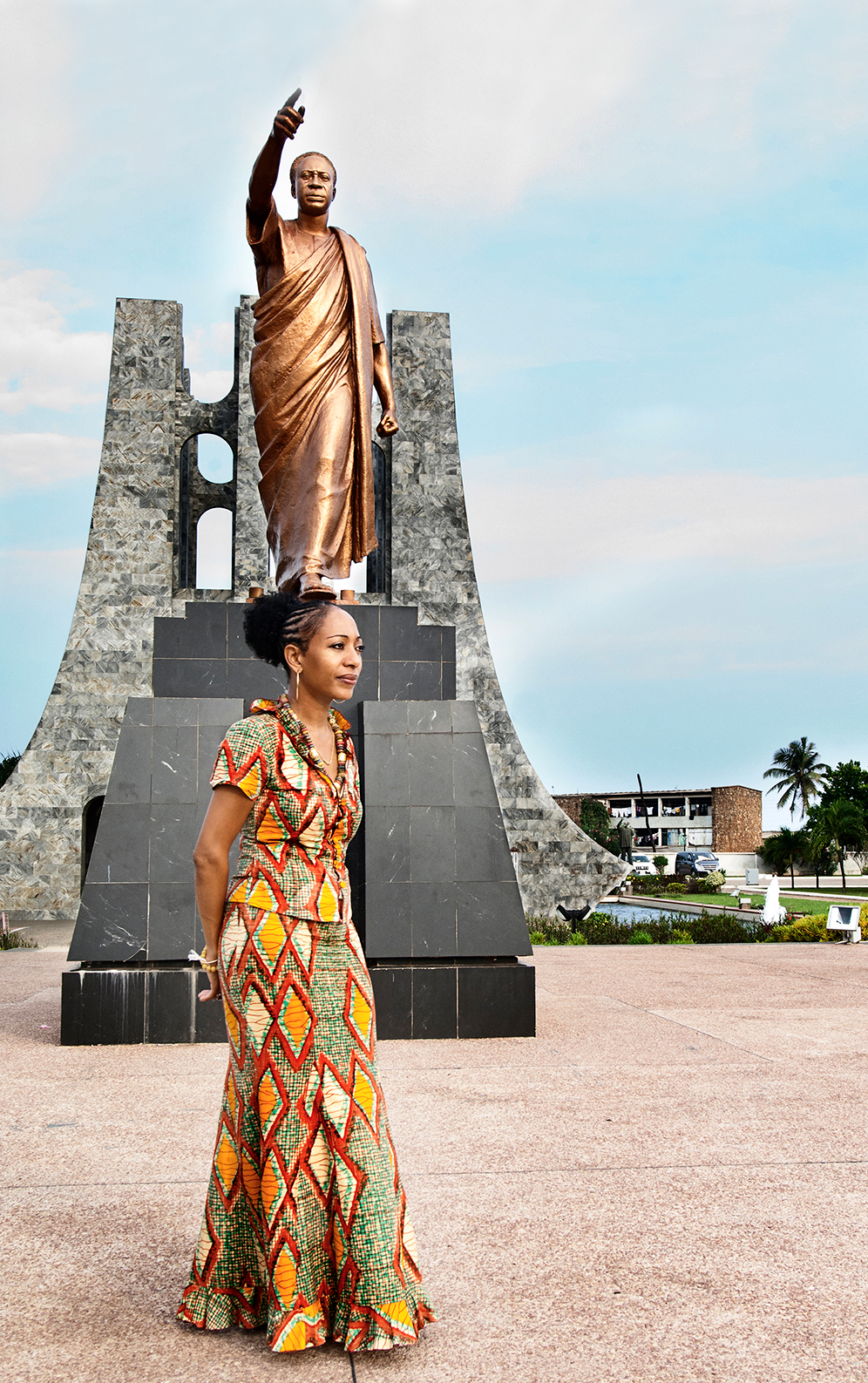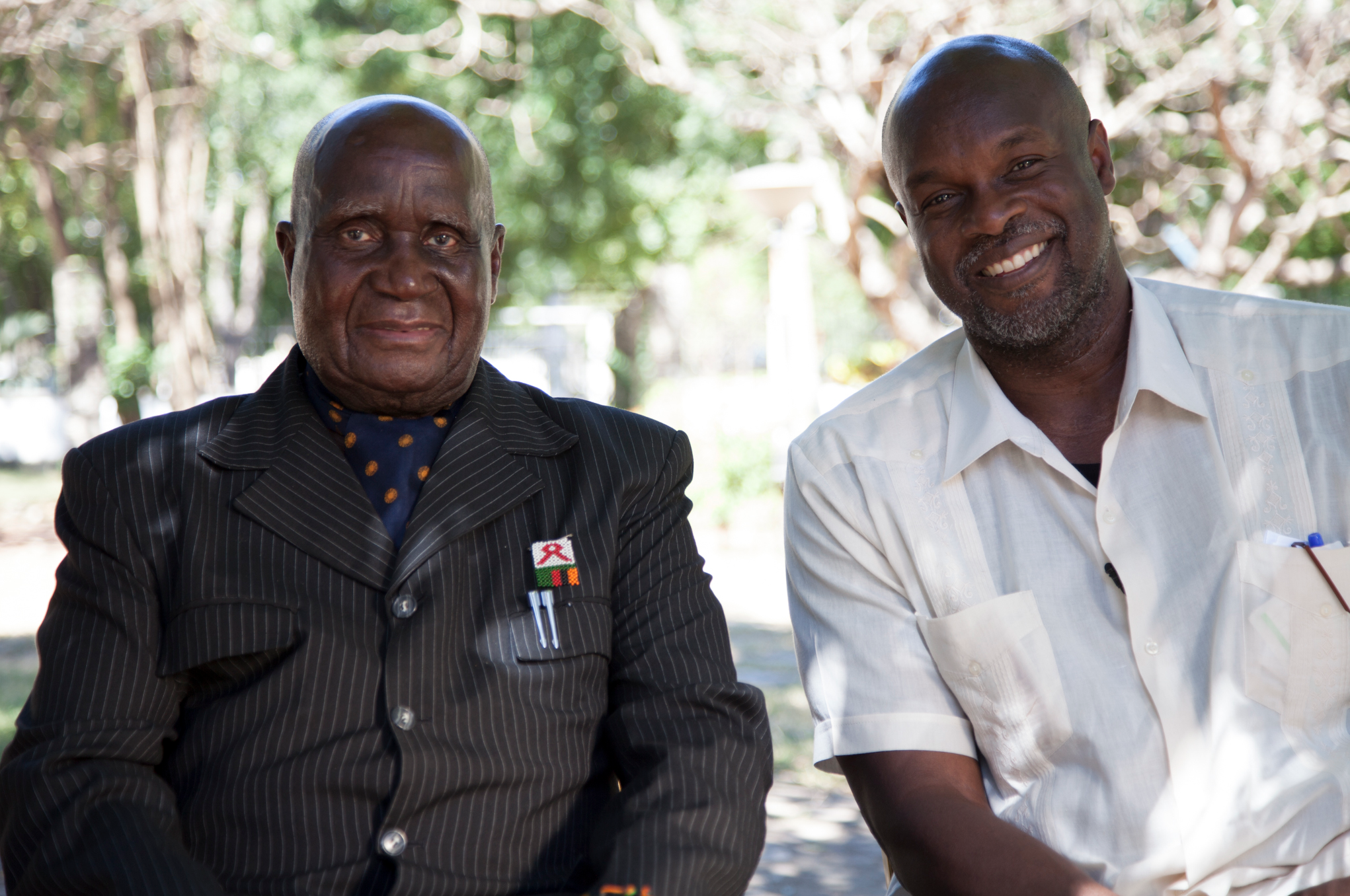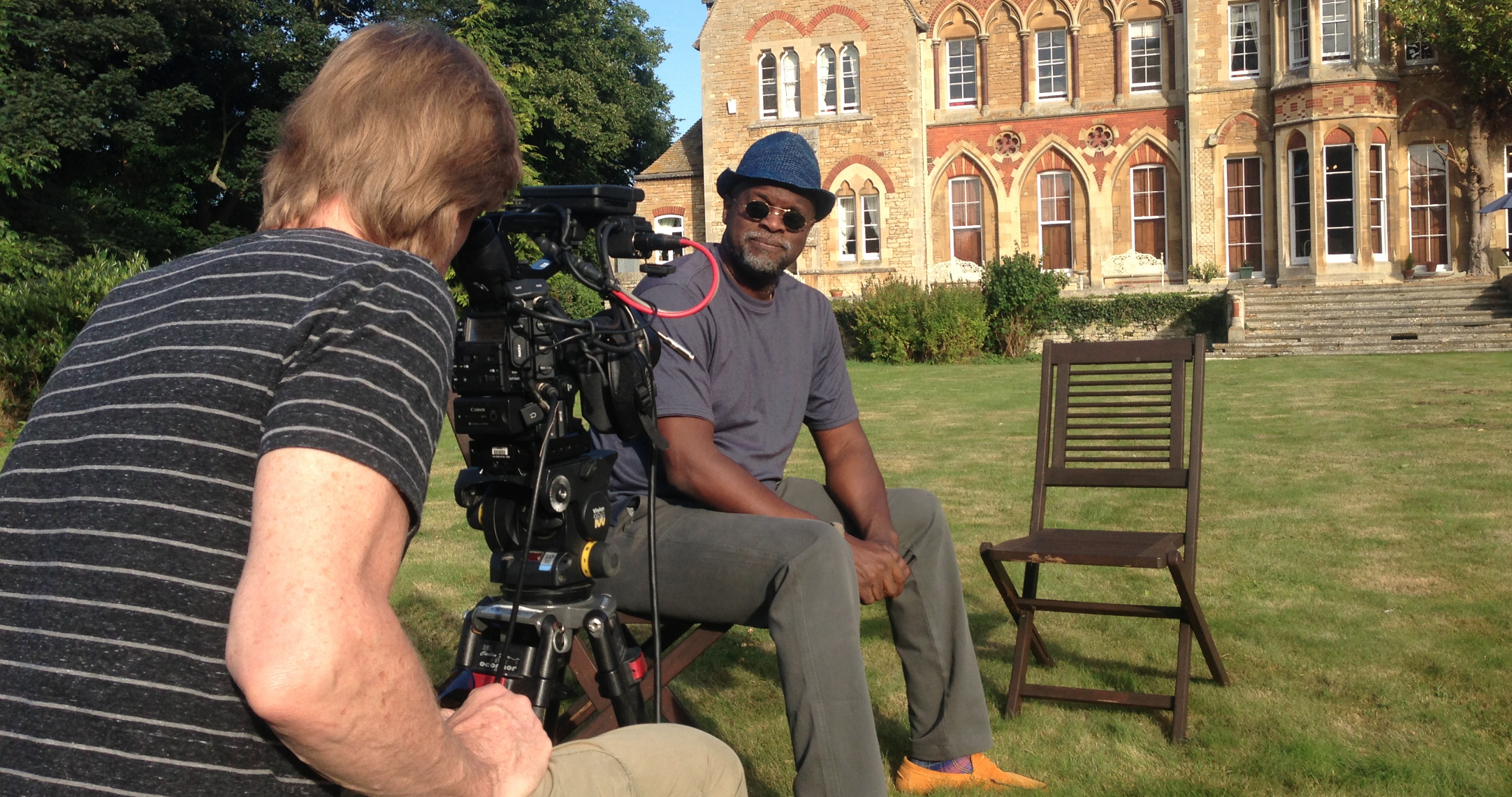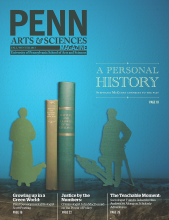The Teachable Moment
Sociologist Tukufu Zuberi Invites Audiences Along on Scholarly Adventures
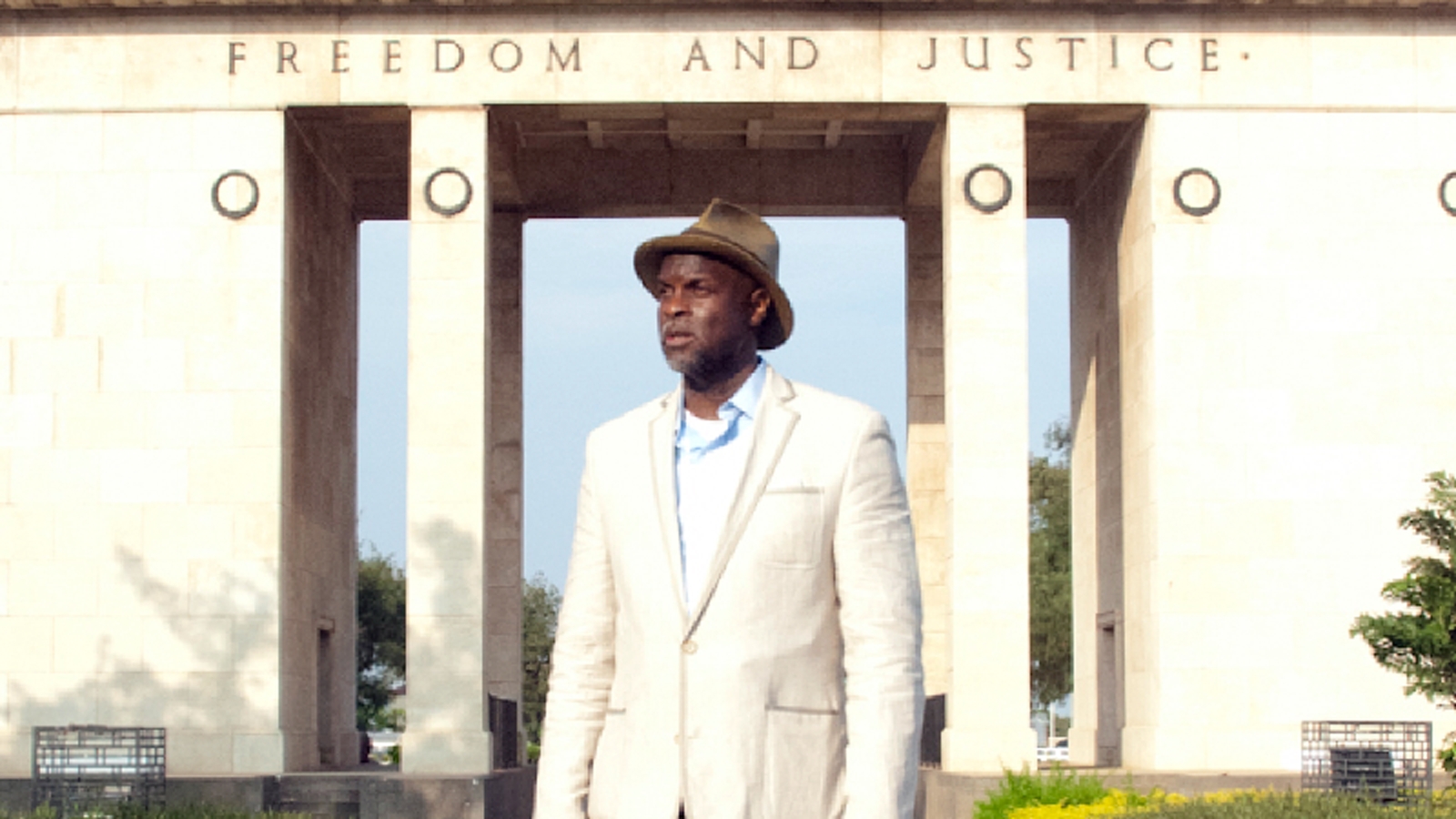
Do you know how Glenn Miller died? How, why, when, where?”
I have to admit, I don’t. And so I ask.
“There you go—I got you. You wanted to know. Once you want to know, then that’s it. You want to get people to ask the question, ‘What are you talking about?’”
This is the roller-coaster ride of conversation with Lasry Family Professor of Race Relations, Professor of Sociology, and Professor of Africana Studies Tukufu Zuberi: diverging and digressing, persuasive and provocative. He’s an expansive person with an expansive mission. He’s on a journey toward a better understanding of “what it means to be a human” and “what human freedom, liberty, and justice look like.” And he wants us to come along with him and enjoy the trip.
In 2013, Zuberi brought this quest for understanding directly to audiences across Philadelphia and around the world. His feature-length documentary African Independence, which tells the story of the continent’s struggle to emerge from enslavement and colonization, was released in January. He curated an exhibition for Philadelphia’s Independence Seaport Museum, called Tides of Freedom: African Presence on the Delaware River. And across town at the Penn Museum, he opened another exhibition, Black Bodies in Propaganda: The Art of the War Poster, featuring 33 posters from his personal collection.
"History Detectives taught [him] some important lessons, including how to hook an audience, tell a good story, and reach a lot of people."
Zuberi’s giant step—from Penn teacher and scholar of race, Africa, and African diaspora populations to teacher on a much more public stage—actually came not in 2013, but in 2003. That was when he signed on to a new show that PBS had developed called History Detectives. The highly successful series has enjoyed 10 seasons, and Zuberi was recently at work on season 11, set to air in the summer of 2014. He has appeared in over 70 segments, covering subjects that run the gamut from the first African-American ventriloquist dummy act to a Ku Klux Klan “hit” song that shared a recording studio and engineer with Louis Armstrong.
Zuberi says that working on History Detectives taught him some important lessons, including how to hook an audience, tell a good story, and reach a lot of people. When he was told that his first episode had a Nielson rating of 3.4, he says, “You start thinking about the millions of individuals that you have most likely touched. ... People sit there and they hear me talk about race in the United States, or they hear me talk about class differences, or about the hierarchy of history. ... That had a profound impact on what I feel is my responsibility. Once I’ve established a rapport with these folks, and they’re interested in what I say, I have both an opportunity and a responsibility to educate them. Which is what my vocation is.”
This realization formed the backdrop for Zuberi’s entry into documentary filmmaking. He wanted to see what he could do with the stories that are important to him, and there was no better place for him to start than the story of Africa. As a doctoral student in demography, he had aimed to do his dissertation research in Botswana, but health problems intervened with his plans. Once he arrived at Penn as a newly recruited assistant professor, he says that he immediately “sat down with my senior colleagues and I said, ‘Okay, I have to do Africa. I know I just got here but I need to go off to Africa.’ And they said, ‘We totally understand.’”
Zuberi spent several years doing research and teaching at Makarere University in Uganda and the University of Dar es Salaam in Tanzania. He wrote Swing Low, Sweet Chariot: The Mortality Cost of Colonizing Liberia in the Nineteenth Century, a detailed demographic study of the impact of the mass migration that involved thousands of African Americans. He was series editor of General Demography of Africa and director of the international African Census Analysis Project (ACAP). He also developed over time a large and broad network of friends and acquaintances in Africa, ranging from health care workers to heads of state—an invaluable asset when he turned his attention to filming a documentary.
Zuberi says that his goal in making African Independence was to help people better understand “what is going on in Africa and why that’s important.” He set out to establish in his viewers a sense of connection with the people of Africa and to move them beyond the “politics of pity” to a place of empathy and recognition of shared humanity.
The film explores the global experience of World War II, where Africans and Europeans shared the horrific disruption of everyday civilian life. It also seeks to connect with viewers through a concept that looms large in America’s collective consciousness. “Independence is meaningful to most Americans…. We all get,” Zuberi notes, that the “colonization” of Poland and France by Nazi Germany was “devastating for those people in Poland and France.” And so it goes with
the colonization of Africa: “It’s devastating to the people in Ghana, it’s devastating to the people in Nigeria, it’s devastating to the people in Zambia, it’s devastating to the people in Mali. So these people then try to gain their independence. It’s a movement that we can all recognize is important for human beings. “
African Independence is circulating through screenings and festivals around the world. To date it has been shown at more than 10 film festivals, and it has won major awards at three of them including Best African Film at the San Francisco Black Film Festival, and Best Director and Best Documentary at the San Diego Black Film Festival.
"[The] goal in making African Independence was to help people better understand what is going on in Africa and why that's important."
Zuberi’s work as a curator was likewise fed by his experiences with History Detectives. It was there that he learned the lesson that “you want to give people a multimedia interaction. You want to give them something that establishes context for why they’re standing where they’re standing.” In the Tides of Freedom exhibit, the place where people are standing includes, among other things, a replica of an auction block where kidnapped Africans would stand as they were sold into slavery. The exhibition combines stage elements like this with artifacts and videos to illuminate 300 years of African-American history along the Delaware River. It will be on display at the Independence Seaport Museum until 2015.
The Penn Museum exhibition, Black Bodies in Propaganda, focuses on images that were used to mobilize people of color in conflicts beginning with the Civil War and ending with the African struggle for independence. Video clips provide additional context for the posters, and visitors are given space to share their thoughts on the contradiction inherent in the exhibit: that people who, Zuberi notes, “were not full citizens in their own country ... went to fight and preserve democracy.” The exhibit will run through March 2, 2014.
Multimedia successes aside, Zuberi is quick to note that he has not “given up on the transmission of information by the book.” Zuberi dove right into the center of an academic fray with one of his best-known books, Thicker than Blood: An Essay on How Racial Statistics Lie, in which he traces the intertwined history of statistical analysis in the social sciences and the search, up to the mid-20th century, for an intellectually defensible rationale for racial stratification. This was followed by a multi-author volume called White Logic, White Methods: Racism and Methodology, which Zuberi co-edited with Eduardo Bonilla-Silva of Duke University. In his introduction to White Logic, Zuberi describes the troubled reactions of some colleagues to Thicker than Blood and maintains that social science journals propagate the “misuse of statistical methods in the analysis of race.” He and Bonilla-Silva were eventually honored with the American Sociological Association’s Oliver Cromwell Cox Award, which recognizes books that make significant contributions to the eradication of racism.
Zuberi is currently on sabbatical, and he is using the time to strike out in a new direction. “I’m retooling,” he says, “and I’m including and embracing South America in my retool.” He was an observer at last summer’s Autonomous Conference of Black, Afro-Colombian, Palenquero, and Raizal Peoples, held to chart next steps in securing the place of these groups in Colombian society. He’ll also be developing new courses to teach in the future, and will be continuing his film work. On top of that, he’ll be working on his Spanish—a skill that might be especially useful since a Spanish edition of Thicker than Blood is now available. Of this latest leg of his long journey, he says, “I’m still trying to better understand our world. ... I take great heart in being a sociologist who can take what I know and give it to a more general audience, and to help educate people so that they also can understand our world better.”
